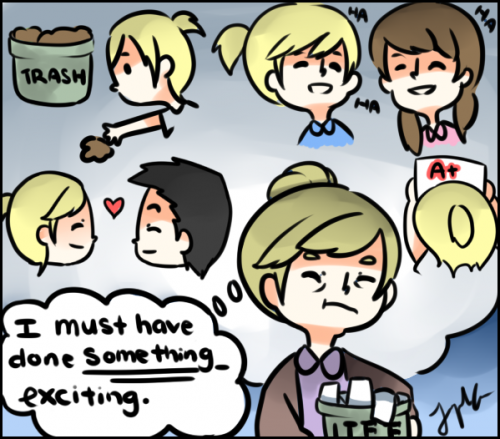Kicking the Bucket List in Favor of Ordinary Moments
SUSANNA AIGA
Opinions Editor
According to the Merriam-Webster dictionary, a bucket list is defined as “a list of things that one has not done before but wants to do before dying.” No one wants to live a mediocre life, and the bucket list serves to help us on our journey to live lives that we can be proud of. However, in this lifelong search for extraordinary moments, we tend to overlook the ordinary experiences of our everyday lives, which are by no means any less important.
A study conducted by researchers at Dartmouth College and the University of Pennsylvania concluded that “ordinary moments that make up everyday life tend to be overlooked when the future seems boundless; however, these ordinary experiences increasingly contribute to happiness as people come to realize their days are numbered.” In other words, young people associated happiness with extraordinary moments, while the older ones thought of ordinary moments as more self-defining.
It is rather depressing when our happiness is quantified by the number of extraordinary things we do before we die, considering the countless number of ordinary moments we experience, which contribute to the quality of our lives much more than a few isolated “big” events do. Who is to say that climbing Mount Kilimanjaro is any more noteworthy than having a memorable conversation with your best friend? Is skydiving really any more impressive than diving into that one particularly difficult problem on last night’s homework and successfully solving it?
Checking off the list of “self-defining” experiences is incredibly gratifying, but it is more important to recognize and appreciate the value of any experience, regardless of the importance we assign to them. Besides, what defines an “extraordinary” moment from an “ordinary” one anyway? It is all relative, and maybe it is our perception of our own lives that is skewed. Although it may appear that we are not making a significant difference by just doing “normal” things, perhaps that one small act of kindness we do for someone else is one that will make a difference in their life.
This phenomenon is best summed up in the classic 1946 film “It’s a Wonderful Life.” Protagonist George Bailey does not see the value of his life due to his failure to accomplish anything on his bucket list (college, traveling the world, etc.) but given the opportunity to reflect on his life and on all the tremendous differences he made through seemingly small acts of kindness, he is forced to conclude that his life is worthwhile. Although we may never be given the opportunity that he had to see the differences we make, we should realize that solely focusing on a bucket list could lead us to overlook other events that may be more memorable or significant later on in life.
Bucket lists put our lives into perspective by reminding us that we are going to die, whether it be tomorrow or 80 years from now. In doing so, it impresses upon us the idea that we need to fill our remaining days with “meaningful” events. However, it is important to dissociate the fulfillment of a bucket list with the only means to achieve happiness and purpose. These can be found in any given moment, no matter how insignificant that moment may appear to be.
